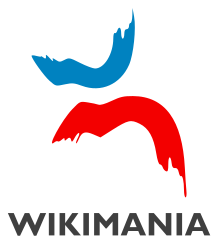Wikipedia:Wikipedia Signpost/2011-08-01/News and notes
Wikimania; why Board of Trustees elections attract few votes; brief news
Wikimedians prepare for Wikimania 2011


On August 4–7 Haifa in Israel will host Wikimania 2011, the seventh annual meeting of Wikimedians from around the globe, joining Germany, the United States, Taiwan, Egypt, Argentina and Poland in hosting the conference. Wikimedia Israel, responsible for overseeing their event, has said that at least 600 Wikimedians are definitely attending the event, which, although nominally four days, will also include preliminary events such a Global south meeting on 2 August, Developer days (see this week's "Technology Report"), and a Chapters meeting. During Wikimania proper, over 120 sessions will be spread across five tracks, covering topics such as GLAM outreach, intellectual property law, the global south, and Wikimedia in education (a full list of sessions is available). There are a number of keynote speakers (including representatives of the Foundation, Professor Yochai Benkler of the University of Harvard, and Dr. Joseph Reagle), hands-on workshops, and social events such as a cocktail party.
In preparation for Wikimania 2011, the Wikimedia Foundation announced the sponsorship of 77 Wikimedians for full scholarships and 52 for partial scholarships, to include contributions to both travel and accommodation at the event, which, although not free, offers discount rates to Wikimedians. In a posting on the Foundation's official blog, Jessie Wild, Special Projects Manager, Global Development, wrote that "This year’s group of full scholars represents the most diverse we have ever had! Female scholarship recipients are up to 18% of the total full scholarships, and 53% of full scholarship recipients hail from the Global South (representing 62% of the funding). Moreover, recipients are coming from all regions of the world."
2011 editor survey: Board of Trustees elections
As part of a continuing analysis of the April 2011 editors' survey, the Foundation's Head of Global Development Research, Mani Pande, has written a blog post on what the results reveal about the reasons for not voting in Wikimedia's annual elections to its Board of Trustees. The most recent elections, earlier this year—in which the three seats up for election were filled by Ting Chen, Samuel Klein and Kat Walsh—were generally felt to have engaged only a small fraction of the wider Wikimedia community, despite a field of 18 candidates. This perception was backed up by the survey, which found that only 13% of editors in the survey, let alone the wider community, said they had voted in any such election.
"Among those who had not voted in the election, the number one reason for not voting in the election was they (45%) had never heard of the elections. Thirty-four percent said that they were not interested in participating in board elections", wrote Pande. When the editors who had stated that they had never heard of the elections were asked whether they would vote in the future now that they knew about them, 54% said that they would be interested in voting in the future. Nine percent of all respondents had run or would like to run in the board of trustee elections, with the rest split among "not interested in running" (84%) and "not eligible to run" (8%).
News in brief
- Chapter fundraising: The last week saw a series of blog posts from Wikimedians concerning the fundraising agreement that allows chapters to keep 50% of the donations from their country. Prompted by WMF Treasurer Stu West, discussion has centred around his main questions, including "Is it right that 50% of rich country donations stay in those rich countries?", "How do we establish solid movement-wide financial controls to protect donor funds? How do we ensure transparency of the use of those funds?" and "Who is ultimately responsible for stewarding donors’ contributions?". Responders include Board trustee Phoebe Ayers (1, 2) and SebMol of Wikimedia Deutschland, among many others. The discussion forms part of the long-standing debates about movement roles, where a workgroup has recently been drafting recommendations and will convene on August 2, ahead of Wikimania.
- TEDxBristol 2011: Roger Bamkin (User:Victuallers), the Chairman of Wikimedia UK, has been chosen to speak at TEDxBristol 2011 on September 8. The event, which uses the TED branding, aims to promote all "ideas worth spreading" within the technology, entertainment, and design sectors.
- Global Education Program launched: This week saw the official launch of the Foundation's Global Education Program. The program, a scaled-up and broadened version of the Public Policy Initiative (PPI), will "encourage teachers from all disciplines to engage their students in Wikipedia editing". Frank Schulenburg, the program's director, explained in a post on the Foundation's blog that he believes that the three main challenges facing the program—as it expands away from the PPI's North American base into India, Brazil, and other countries worldwide—are "scalability ... standards and guidelines ... [and] communication".
- Meetups: A Wikipedia community meetup took place in Washington, D.C. on July 29; it followed a tour and edit-a-thon at the Archives of American Art. There will be another backstage pass event this Saturday, August 6 at the U.S. National Archives facility in College Park, Maryland.
- New administrators: The Signpost welcomes Qwyrxian (nom) and Reaper Eternal (nom) as our newest admins. Qwyrxian, who has more than 24,000 edits, though a serious editor for only just over a year, plans to work in the areas of AIV and RPP. Reaper Eternal, who was one of a very small group of non-admins to be trusted with edit filter management rights, also plans to work in the areas of AIV and RfPP. At the time of publication there were no open RfAs.
- Milestones
- The Moksha Wikipedia has reached 1,000 articles. Moksha is a Finno-Volgaic language spoken in about six dialects in a region several hundred kilometers east of Ukraine, in Russia. It uses a version of the Cyrillic alphabet.



Discuss this story